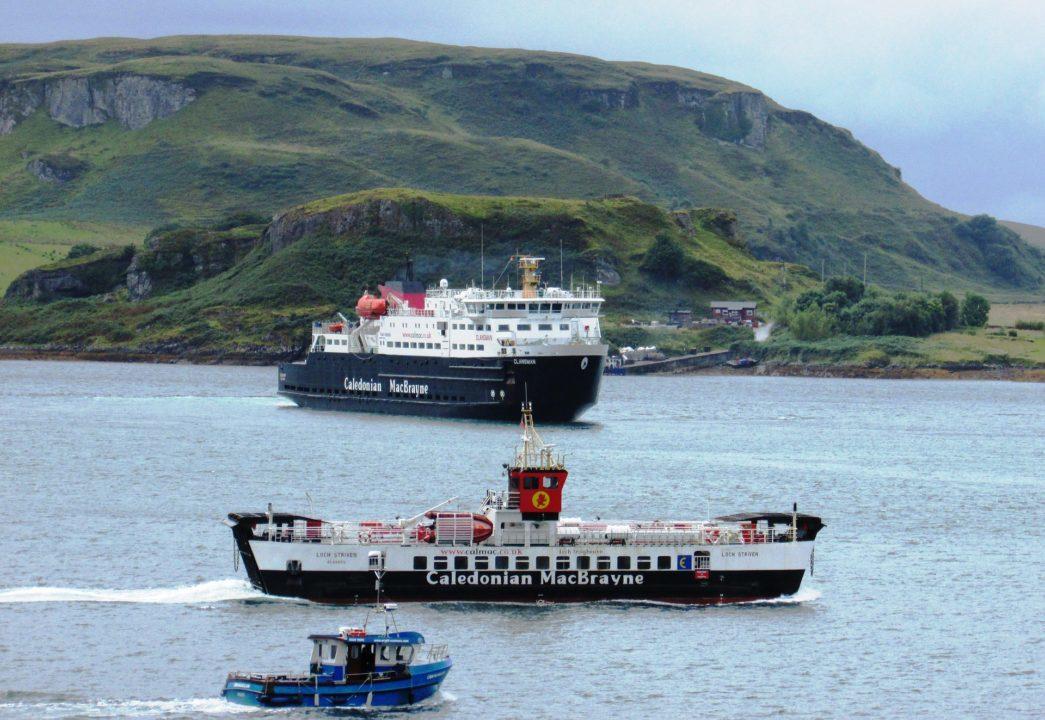Yesterday’s damning report into the procuring of two new ferries for CalMac makes the kind of reading that should make the blood boil.
It is not just that the final cost to the taxpayer will be more than double the original contract price of £97m.
£100m has been blown, wasted, lost to incompetence. I watched the interview by Paul Wheelhouse MSP, the Scottish Government minister for energy, connectivity and the islands. His response seemed to amount to an ‘Oops, sorry, we will try and learn lessons’.
Public servants who have worked on through the Covid pandemic and who are not to receive the Scottish Government’s £500 thank-you, may well ask why they are not to be recognised by a government than can write blank cheque after blank cheque.
Without rehearsing the tortuous detail of the complex relationships that led to this current fiasco, the striking thing about many of the themes is that they have an eerie echo in the biggest procurement scandal of devolution: the building of Scotland’s parliament.
I sat through every day of the Fraser Inquiry back in 2003. It established why an original indicative budget of £40m eventually mushroomed to well over £400m.
The reasons for calamity were actually rather simple. The often-quoted budget did not relate to any design. The procurement method used (construction management) was chosen for speed. Critically, it was a cardinal rule that once signed off, designs could not be altered. The relationship between architect and building contractor had to be a symbiosis of efficiency to minimise cost.
During the Holyrood building project, the client changed from the old Scottish Office to the Scottish Parliament’s Corporate Body, reflecting the formal arrival of devolution in 1999. The original ‘budget’ was a line in a White Paper in 1997 which preceded the referendum in September that year.
Cue disaster.
Designs were ripped up. Monies spent were wasted. The temperamental architect died. The risk in the procurement regime fell on the public purse as the building project became a dripping roast for consultants.
The final report into what went wrong demonstrated incompetence by the civil service on a scale that led one to ask, did any of them know what they were doing? The project manager at one point was actually a statistician. Building professionals who warned of disaster were marginalised for their perceived awkwardness.
The report I thought was a depressing narrative and represented the last incompetent hurrah of the ‘old’ Scotland. The scandal (too light a word really) was pre devolved Scotland’s endowment to the new institution which was widely ridiculed in the early years.
That report by the late Peter Fraser was 16 years ago. I assumed the recommendations would filter into every procurement process to insulate taxpayers’ money from flawed processes, root out incompetents passing themselves off as knowledgeable and banish contractual regimes which do not bulletproof our money in the risk stakes.
Apparently I was mistaken.
What in a sense is inexcusable is that we are two decades into devolved government with a parliament and committee system which has had ample time to impose processes which should render financial calamity improbable if not near impossible.
The big picture rules about procurement are designed to protect public money. They will never completely fire proof against incompetence because of poor micromanagement. The £150m Sick Kids hospital in Edinburgh opened late after an additional £16m had to be spent rectifying faults with ventilation which was not spotted in designs.
Thankfully, private contractors appeared to have carried the cost of repairs to Edinburgh schools built by PFI. A wall collapsed at Oxgangs Primary School in 2016 and an audit was done to establish what repairs were necessary to the school estate.
The fallout from the ferry contract is still in its infancy. The businessman Jim McColl, who used to own Ferguson shipyard, is digesting the Holyrood committee findings. Reports today say he wants a public inquiry into the fiasco and is reviewing his legal options given the report’s conclusions.
In crude financial terms, the magnitude of the cost over-runs of the ferry contract may not exceed those of the Holyrood building, but in some respects it is an even bigger cause for concern. Why? Well, for one, the legacy of the Fraser Inquiry was to fix procurement regimes that are not fit for purpose.
The tough business of government often involves the wearing of a stony face and saying no to demands for more money.
Every individual and organisation worthy of a financial helping hand will look at the ferry fiasco, the money ploughed into BiFab, Prestwick airport et al and ask of ministers, if you can waste so much, why is my cause deemed unworthy of support?

 CalMac
CalMac

























